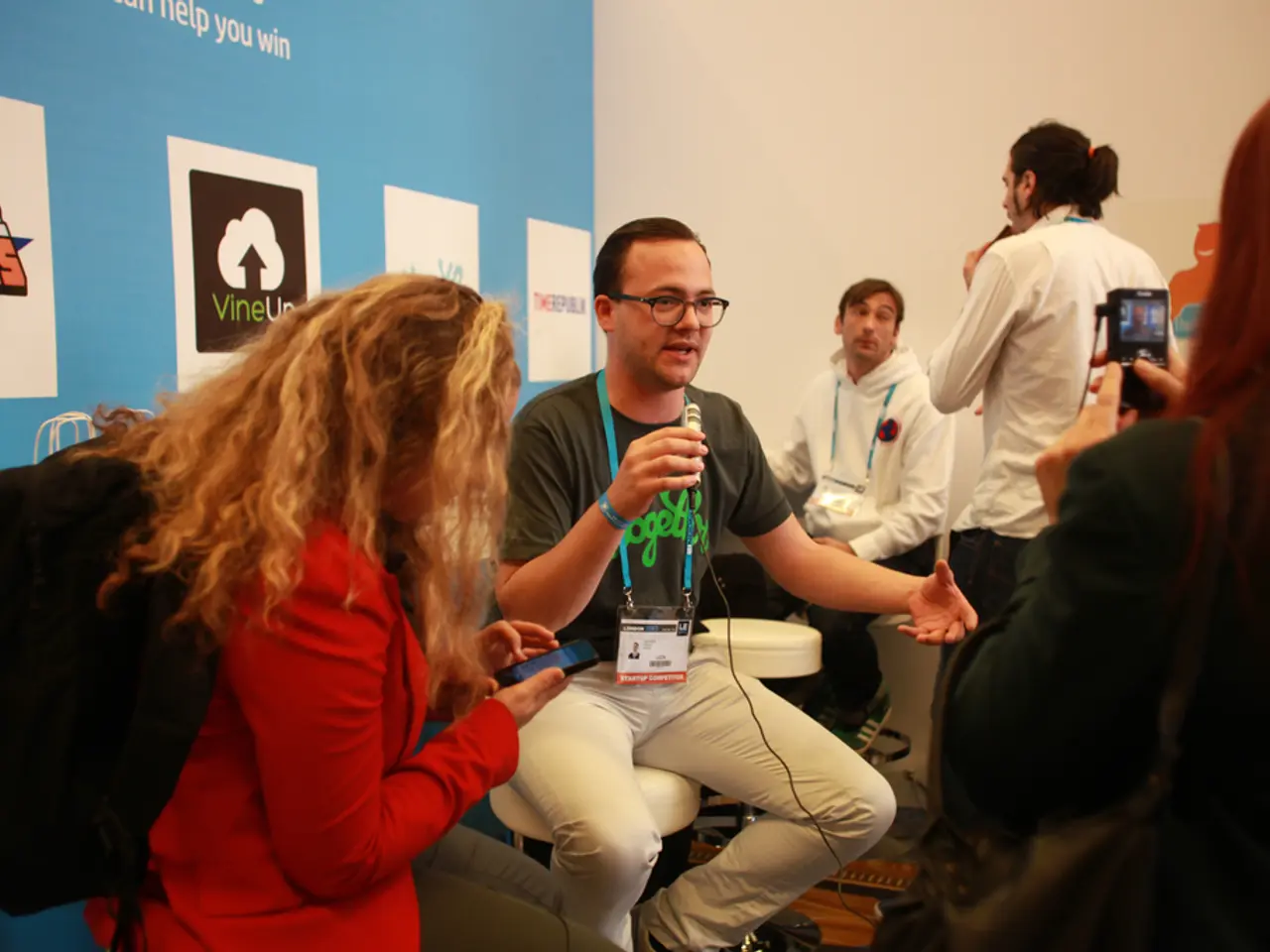Mental health care professionals emphasize the need for support in their job search, yet lag behind in obtaining tech training, according to recent findings.
In the dynamic and demanding world of healthcare, a global benchmark of 49% exists for the belief that the industry is better prepared than others for technological shifts. However, only 43% believe this to be true, indicating a growing need for change 1.
This change is reflected in the priorities of healthcare professionals, with 88% valuing a sense of community at work for their mental health 2. Yet, year-on-year talent growth in the sector remains minimal at 1.3% 1.
The sector is currently grappling with a talent shortage, with more than 1.4 million healthcare roles unfilled worldwide 3. Sander van 't Noordende, CEO of Randstad, emphasizes that building connected, future-ready workplaces is essential to attract and retain healthcare talent 1.
Confidence in using the latest technology is waning among healthcare professionals, with North America lagging behind at 56% 4. Nearly half of healthcare professionals (49%) feel unprepared for tech-driven change in their roles 5, and only 64% feel prepared to use new technology, such as AI, in their roles 5.
In the face of talent scarcity, healthcare workers prioritize employers who offer mental health support, a strong sense of community, and opportunities to grow their skills 1. To address this, healthcare organizations can implement several strategies.
First, creating a stigma-free environment where healthcare workers feel safe discussing mental health struggles is crucial 1. This openness encourages early help-seeking and reduces burnout.
Second, offering accessible counseling services, either on-site or virtually, and actively promoting these resources can help address mental health concerns 1. Integrating Employee Assistance Programs (EAPs) that include manager training to identify and support mental health needs is also beneficial 1.
Third, encouraging regular breaks and manageable workloads can prevent fatigue and foster peer support networks or mentorship programs that build resilience and a sense of community among staff 1.
Fourth, promoting a culture of openness and support, including flexible scheduling or remote work options where feasible, can reduce workplace stress and improve employee well-being 3.
Fifth, implementing team recognition programs and visible, empathetic leadership can build a supportive workplace culture, particularly important in senior living and care settings where staffing shortages are acute 4.
Sixth, supporting self-care practices, such as providing resources and opportunities for quiet time, reflection, professional development, and cultural expression, and encouraging team members to connect and support each other regularly can further enhance workplace well-being 5.
Lastly, developing a compelling Employer Value Proposition (EVP) that aligns with the organization’s mission and values, reinforced by strategic workforce planning and salary benchmarking to remain competitive in a talent-scarce market can attract and retain top talent 2.
By integrating these approaches, healthcare organizations can enhance employee morale, reduce burnout, strengthen team bonds, and increase loyalty, ultimately improving recruitment and retention in a highly competitive environment 1345.
Moreover, the data indicates that a clear opportunity exists for employers in the healthcare sector to invest in upskilling and continuous learning to empower healthcare talent and future-proof the workforce 6. A higher percentage of healthcare professionals (44%) would quit over a lack of equity-oriented efforts compared to other sectors 7. Furthermore, 76% of healthcare professionals consider mental health support a key factor when evaluating employment opportunities 8.
In conclusion, by prioritizing mental health support, workplace community, and continuous learning, healthcare organizations can attract and retain talent, overcome staffing shortages, and prepare for the future challenges in the industry.
References:
[1] Randstad. (2021). Future Ready Workforce 2021: The Global Workforce View. [Press Release] [2] Randstad. (2021). The Employer Value Proposition (EVP): A Key to Talent Acquisition and Retention. [Whitepaper] [3] Randstad. (2021). The Future of Work: Building a Resilient Workforce. [Whitepaper] [4] Randstad. (2021). The Future of Care: Navigating the New Reality of Senior Living and Care. [Whitepaper] [5] Randstad. (2021). The Future of Work: Strategies for Building a Thriving Workforce. [Whitepaper] [6] Randstad. (2021). The Future of Work: The Rise of the Reskilling Economy. [Whitepaper] [7] Randstad. (2021). The Future of Work: The Impact of Equity and Inclusion on Employee Experience. [Whitepaper] [8] Randstad. (2021). The Future of Work: The Role of Employee Well-being in Employee Experience. [Whitepaper]





